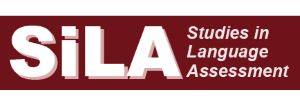Language assessment literacy: Understanding the construct from Norwegian EFL teachers’ perspective
Henrik Bøhn, University of South-Eastern Norway
Dina Tsagari, Oslo Metropolitan University
Dina Tsagari, Oslo Metropolitan University
|
https://doi.org/10.58379/UNUD5510
|
Volume 11, Issue 1, 2022
|
Abstract: The question of what language assessment literacy (LAL) entails continues to preoccupy the research community. In the current study empirical evidence from Norway was gathered in order to inform our understanding of the construct. The focus of the investigation was twofold: First, it explored how Norwegian EFL teachers understand LAL. Secondly, it examined to what extent the same teachers found the dimensions in Taylor’s (2013) LAL model relevant in the Norwegian context. To that end semi-structured interviews were carried out with 10 teachers at the lower and upper secondary levels in Norway. The results showed that the teachers attributed a lot of weight to disciplinary competence and formative assessment, and they agreed with Taylor on several of her hypothesized dimensions, such as the importance given to language pedagogy. However, they also disagreed with some of the other dimensions, such as test-specific skills (e.g., how to design and validate multiple-choice tests), which they believed to be less relevant in the Norwegian context. The findings point to the contextualized nature of teacher LAL and provide important knowledge on how teacher LAL can be conceptualized and how Taylor’s model can be developed and refined.
Keywords: assessment literacy, language assessment literacy, formative assessment, language teachers
